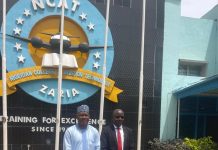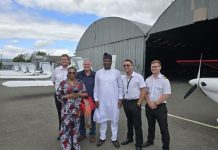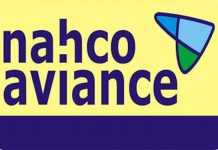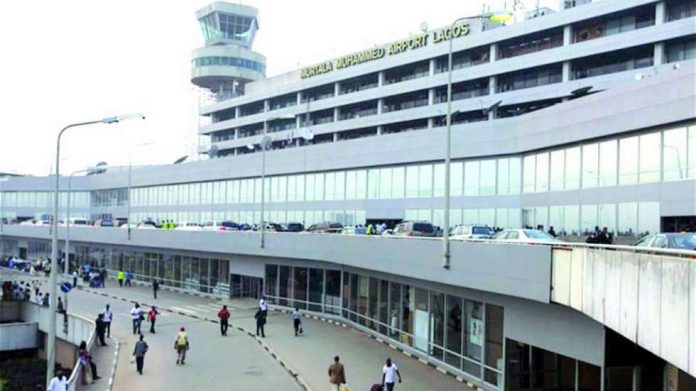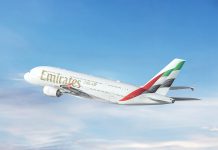There are strong speculations that the Federal Government may have reserved the entire old terminals at the international wing of the Murtala Muhammed Airport (MMA), Lagos and the Nnamdi Azikiwe International (NAIA), Abuja, for Nigeria Air, the planned national carrier.
According to Daily Independent, a source close to the Ministry of Aviation, told the newspaper on Thursday, that Nigeria Air would operate its entire local operations from the international wings of the two terminals.
This decision by the government is however said to have already created ripples in the industry, as stakeholders, especially airline operators, alleged that the Federal Government was already creating a dichotomy between the existing indigenous carriers and the planned national carrier.
They warned the government to desist from the plan, recollecting that in 2004 and 2006, the government gave the former flag carrier, Virgin Nigeria, and Arik Air the same international wings for their domestic operations, at the expense of other domestic airlines.
Although the national carrier is yet to commence operations, there are indicators that the airline may begin operations in July.
A document obtained by Daily Independent and signed by the 10 indigenous scheduled airlines under the auspices of Airline Operators of Nigeria (AON) suggested that the airlines were against the reservation of the two international terminals for Nigeria Air. In the document, AON alleged that there was no level playing ground for the operations with the planned reservation of the terminals solely for the national carrier.
The umbrella body of airlines in Nigeria, therefore, called for a national debate, on the need for a national carrier, purporting that the process for now, lacked transparency as claimed by the government. The document stated:
“It is sad to note that AON has become aware that privileged rights have already been allocated to the proposed carrier.
A situation where the old international terminals in Lagos and Abuja are being proposed for the national carrier to operate from clearly shows that there is no level playing field in relation to domestic airline investors that have been keeping the industry active and driving the Nigerian economy for over two decades.
There is a serious and urgent need for a public debate on the need for a national carrier and the processes to be adopted to bring it to birth.
Regrettably, this has not been done as Nigerians and various relevant ministries, departments and agencies (MDAs) are still kept in the dark about the project.”
However, Capt. John Ojikutu (rtd) said that the government was in order, providing it reserves the two terminals to Nigeria Air. According to him, in other countries, some terminals are solely reserved for their national airlines. He went ahead to cite the example of Heathrow Terminal 5, which is exclusively used by International Airlines Group members, British Airways and Iberia.
Ojikutu also explained that the new terminal in Lagos could facilitate quick turnaround for the national carrier, and enhance its regional, continental and intercontinental connectivity.
In his words, “ I don’t have any objections to it if the new terminal is designated for the national carrier. In other climes like the Heathrow Airport, where there are about six terminals, at least one of the terminals is dedicated to the British Airways.
Meanwhile, there is no adequate space at the new terminal apron to accommodate several fleets of multiple airlines and the boarding gates are only six unlike the about 12 at the old terminal.
Let the new terminal and the new national carrier be until there is room to accommodate others. Apart from the fact that there is no sufficient space to accommodate other airlines’ aircraft, the indigenous airlines are private airlines and are neither national nor designated flag carriers.”
The Chief Executive Officer, Belujane Konzult, Mr. Chris Aligbe, refrained from commenting much on the reservation of the two terminals to Nigeria Air, considering the allegation could not be confirmed yet. He however stated the former international wing of the Abuja airport was previously used by Arik Air, thus, wondering why AON was raising an eyebrow on it.
According to Aligbe, since the completion of the new international terminal in Abuja, the former international wing could no longer be referred to as an international terminal, rather a domestic one.
He said: “I don’t want to dwell on anything that is an allegation, but on issues that are clear and categorical, particularly as it concerns the international wing of Lagos Airport.
I don’t have it before me, but on the old international wing of Abuja, this was where Arik Air was operating from.It is in between where Air Peace, Aero and Dana operate and the other side was where Med-View and others were operating from. In between them, was where Arik Air was operating with some foreign airlines.
When they launched the new international terminal, that place ceased to become an international wing because on the right, Air Peace, Dana and Aero Contractors were operating and on the left, we had other airlines operating from there, too. So, that place has remained fallow and cannot be called an international wing that is being reserved for the national carrier.
It has since become a domestic terminal. That is what I know about Abuja. That claim of the AON has no basis because it is not. I don’t know about Lagos.Until I know what the government is doing about Lagos, I will not react to the allegation.I will comment when the government has made a move, but I won’t comment on anyone’s allegation”.
It should be noted that the Federal Government, in August 2008, had forced relocation of Virgin Nigeria and Arik Air out of the international wing of Lagos, four and two years, respectively, the rights were granted the two airlines. While Arik Air immediately moved its operations to the General Aviation Terminal (GAT) of MMA, Virgin Nigeria reluctantly relocated to Murtala Muhammed Airport Two (MMA2), Lagos.
This move angered Mr. Richard Branson, founder, Virgin Group, who owned 49 percent stake in Virgin Nigeria Airways.He subsequently expressed worries over the action of the government, asking, rhetorically, “If Virgin Nigeria can be treated in this way, can any company in the world seriously consider investing in Nigeria in the future?”
Few months following this, Branson sold the Virgin Group’s shares in the airline and was later renamed Air Nigeria after it was acquired by Mr. Jimoh Ibrahim.



